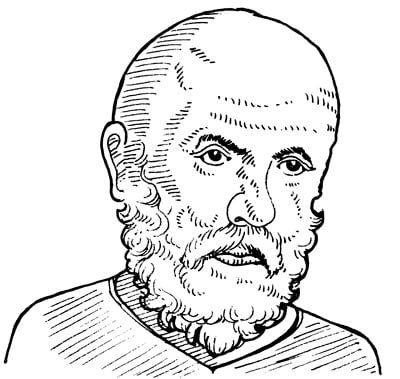
Hippocrates (460 B.C.-380 B.C.) made such an impression on medical history that his name is still very much associated with medicine today. All newly qualified doctors take what is called the ‘Hippocratic Oath’ and some see Hippocrates as the father of modern medicine even though he did most of his work some 430 years before the birth of Christ.
Greek doctors had started to look at the issue of poor health and disease by using a process of reasoning and observation. The most famous of these was Hippocrates. He is thought to have been born in Cos in 460 BC. In fact, we know very little about Hippocrates as a person but his fame was such that Plato and Aristotle wrote about him. While Hippocrates has found fame in medical history, there were other Ancient Greek doctors who were not so lucky.
Ancient Greek medical knowledge is demonstrated in what is known as the Hippocratic Collection. This is a collection of sixty medical books of which Hippocrates wrote just some. We do not know who wrote most of them but they cover a time span of 150 years so they could not have all been written by Hippocrates.
Hippocrates and other Greek doctors believed that the work done by a doctor should be kept separate from the work done by a priest. They believed that observation of a patient was a vital aspect of medical care. Ancient Greek doctors did examine their patients but Hippocrates wanted a more systematic period of observation and the recording of what was observed. Today, we would call this ‘clinical observation’. Such ideas have lead to Hippocrates being called the ‘Father of Medicine’.
The Hippocratic Collection gave Greek doctors detailed advice on what to do with their patients.
In the book ‘On Epidemics’, doctors were told to note specific symptoms and what was observed on a day to day basis. By doing this they could make a natural history of an illness. Hippocrates and other doctors believed that by doing this they could forecast the development of the illness in future.
The ideas of Hippocrates and others spread in the eastern Mediterranean and others took to writing down what they saw with regards to illnesses. These writings have survived and have given historians a vast resource to study.
Hippocrates and other doctors worked on the assumption that all diseases had a natural cause rather than a supernatural one. Priests believed that an illness such as epilepsy was caused by the gods. Hippocrates believed that with all other illnesses it had a natural cause.

